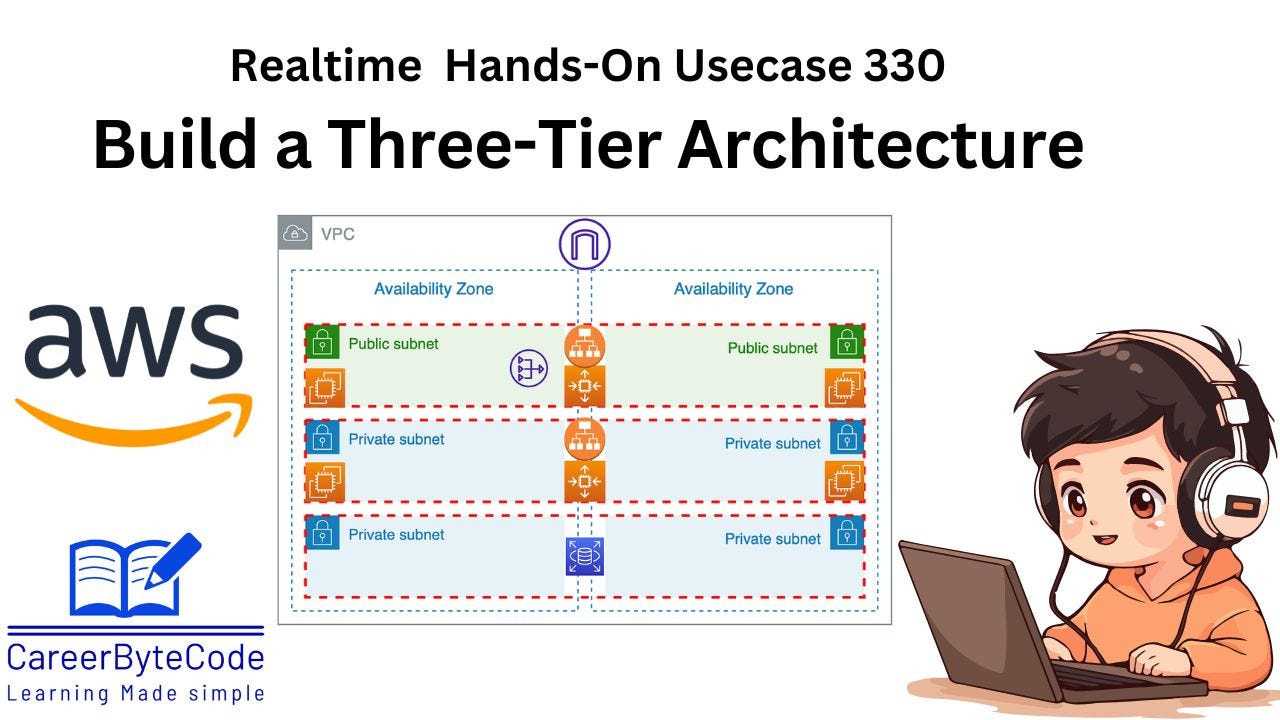AWS VPC Three-Tier Setup: Design Jump Server, Application, and DB
You are asked to deploy an application in AWS following a three-tier architecture. The client insists that the database should not be exposed to the internet.
1. Problem Statement:
The client has requested the deployment of a 3-tier web application on Amazon Web Services (AWS) with strict security policies. One of the key requirements is that the database tier must not be exposed to the public internet under any circumstances, as clients follows a "zero-trust" architecture.
2. Why We Need This Use Case
Multi-tier architecture is a well-established software design pattern that organizes applications into three logical and physical computing tiers:
Presentation Tier (Jump Server)
Application Tier
Data Tier
The key benefits of implementing this architecture in AWS VPC include:
✅ Enhanced Security – Each tier is placed in separate subnets, reducing the attack surface and implementing least-privilege access.
✅ Better Scalability – As demand grows, additional servers can be added at specific tiers without impacting the others.
✅ Improved Maintainability – Each layer operates independently, making it easier to update or modify one without affecting the others.
✅ High Availability – By leveraging multi-AZ deployments, application uptime is increased.
3. When We Need This Use Case
This architecture is needed when:
✔️ Hosting enterprise applications that require a secure and scalable setup (e.g., ERP, CRM, banking applications).
✔️ Running web applications with backend processing (e.g., e-commerce websites, data analytics dashboards).
✔️ Deploying cloud-native applications that follow microservices principles.
✔️ Ensuring compliance with security best practices, such as PCI-DSS, HIPAA, or GDPR, by segregating different components of an application.
4. Challenge Questions
Keep reading with a 7-day free trial
Subscribe to CareerByteCode’s Substack to keep reading this post and get 7 days of free access to the full post archives.




